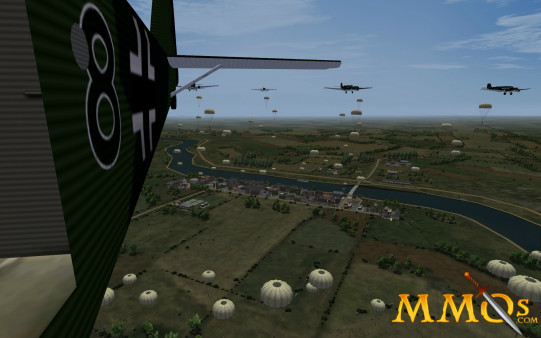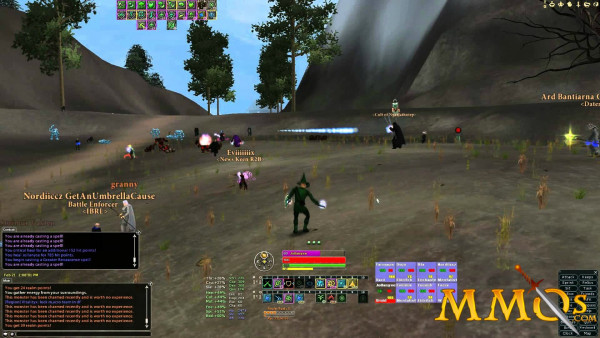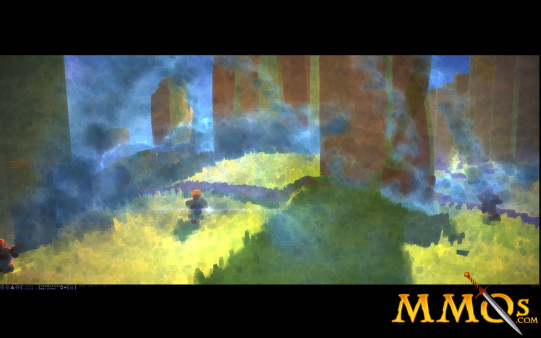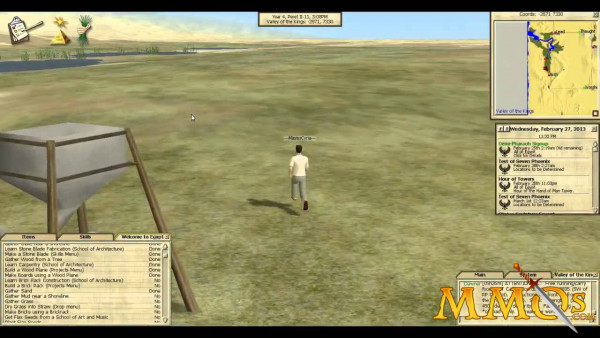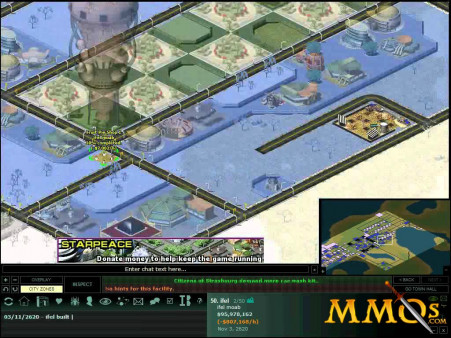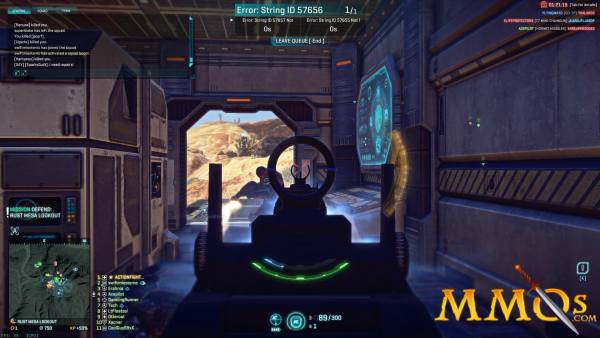Four Alternatives To An Endgame

Last month, I posed a question: “Is the concept of an endgame part of the problem?” In the accompanying article, I suggested that splitting an MMORPG into two distinctive halves may, in fact, be part of the problem with MMORPGs. I did not, however, offer any solutions to the problem. Today, I am going to offer several alternatives to the modern concept of an endgame.
Nonstop territorial warfare
I will never forget the first time I loaded up World War II Online: Battleground Europe. At the time, I was still part of a Mac-only household and had yet to play Planetside. The game was daunting at first, but I was also intrigued and amazed. I was able to choose a platoon and instantly drop into a neverending war over a ½ scale model of Europe. Within seconds, I could be fighting with and against hundreds of other players working to take the same capture point. Sure, there was a leveling system, but it only opened more options. I could be competitive from the moment I joined.
It was quite a different experience and my time with the game was the definitive first step towards my inclination for games with territorial warfare. Since then, many other games have released using a system of territorial warfare. EVE Online, Champions of Regnum, Dark Age of Camelot, and Global Agenda are just a few that come to mind. But I feel that it isn’t common enough. The concept of non-instanced PvP has become a niche in and of itself. A large portion of the MMORPG audience doesn’t like open PvP, even if faction-based.
There’s also the issue of balance. When the factions are predefined, there’s usually one faction that is much more populated than the other(s). When factions are created by players, usually a combination of guilds and alliances, there is always the concern that one large guild could dominate the rest. However, when factions are player-run, there is potentially more balance, as smaller guilds could band together to take down a larger one.
The biggest problem, by far, is that you cannot include a standard leveling process in a game focused on territorial warfare. The reason that this doesn’t work goes back to the idea that the endgame is part of the problem; it creates two different games. Therefore, the PvP can't be the endgame. It has to be prevalent throughout the entire game. If it's not, the PvP player isn’t getting where he wants to be fast enough and the PvE player won’t have anything to do at max level. I remember that when I reviewed Champions of Regnum, I spent the entire time that a higher leveled played was graciously power leveling me in a cycle of “can I PvP now? No. Can I PvP now? No.”
There are extremely rare cases where this isn’t entirely true. However, from what I’ve read of recently player testimonials, providing crafting, farming, fishing, etc. isn’t enough anymore. The casual PvE player that enjoys those activities will often leave a game with a PvP focus, rather than supporting other players who enjoy the PvP.
I imagine a few of you read this section and thought "but wait, territorial warfare is a form of endgame." You would be right. Territorial warfare has indeed been used as a form of endgame. But there are also cases where it is not the endgame, but the basis of the game's core gameplay. These are the games I believe are providing the sort of experience that MMORPGs need to have, leveraging the entire game world as a battleground from the very beginning rather than segmenting off specific areas as impenetrable safe zones.
Procedurally generated content
Action RPGs and roguelikes have nailed replayability through the use of procedurally generated content. But MMORPGs as a whole have yet to embrace the it. I am someone who’s not a fan of raiding and repeating the same dungeons over and over again. Perhaps this could be solved through the use of more procedural content.
Eskil Steenberg's LOVE is one of the best examples of a procedurally generated MMO. The painterly MMOFPS featured procedurally generated worlds and an endless fight against various AI tribes. Due to this and a complex AI, the game is infinitely replayable.
Procedural content has its problems—it’s certainly not a be all and end all solution—but I would like to believe that an MMORPG that revolves around procedural content could do well. While LOVE came before it, Trove’s pseudo-procedural content opened the proverbial door and I believe we may be seeing more in the future. My problem with Trove has always been that the world is generated procedurally, but the dungeons—the actual content—are hand-crafted.
I rather like the idea of procedural worlds that you drop into with a persistent character. It keeps the experience focused on a single paradigm and that paradigm can continuously remain at least the smallest bit fresh. Alternatively, you could have a finite world that is regenerated every week/month/year, but your character remains intact. There are a number of possibilities for procedural content and very few MMOs looking to explore them.
Finite game worlds
I touched on this a bit in one of our podcasts. Perhaps finite game worlds are exactly what some games need. Currently, the only MMO that even attempts to create an experience out of a finite world is A Tale In The Desert. Each telling lasts approximately a year and a half or two years. Players are given specific goals, such as building monuments, and must complete them to “win” the telling.
With new goals each telling, the game potentially remains fresh every telling even if the core progression path remains the same. A Tale In the Desert also has the benefit of being a player-driven economic sandbox, but one has to wonder why this isn’t being done more often, nonetheless. It gives players a reason to start over with new goals to work towards. It ensures that there is always a goal to work towards, unhindered by content updates. It’s a model I would love to see developers tread new ground in.
A focus on something that can be played endlessly
This is a bit vague, so let me explain. Stories can’t be played endlessly. The same boss fights eventually get old and tired. However, there are other focuses that can be less repetitive. There are other options that have only barely been explored.
Two options that come to mind are economic and management games. Both genres have an absurdly large amount of browser games, but neither have made a lot of headway in an environment that matches their offline counterparts. StarPeace had, at one time, attempted to become an almost halfway point between a futuristic SimCity and Capitalism, but it never took off. 90 Minute Fever is pitching itself as something that sounds a lot like the ever-popular Football Manager series in MMO form, but it has yet to launch.
In both economic and management games, there are always variables changing. There is always something you have to watch that is decaying. Perhaps your players are getting too old. Perhaps the price of the item you specialize in producing is plummeting. Regardless of the case, there is always something keeping you on your toes. There’s always something to work towards. Perhaps the issue is simply that MMORPGs need to shift their focus.
There’s no guarantee that any of these solutions would see resounding success. The harsh reality of the MMO genre is that many games that try to change things up end up as niche titles. But we won’t know for sure until someone tries and there is plenty of room for them to try. With any luck, we may very well see MMOs with different design goals in the near future.
